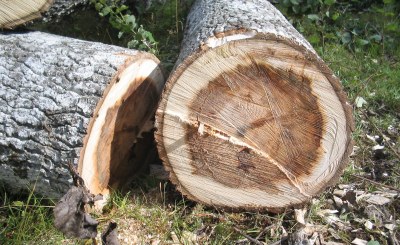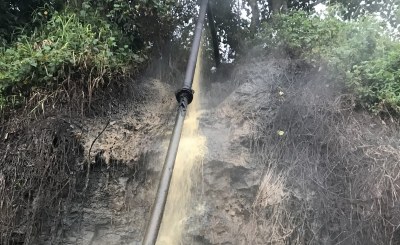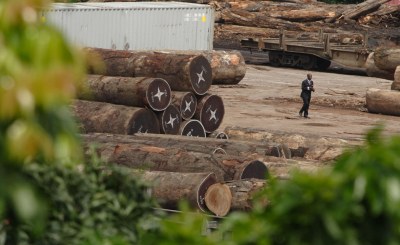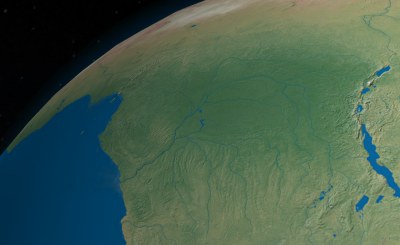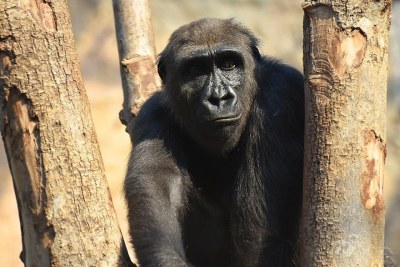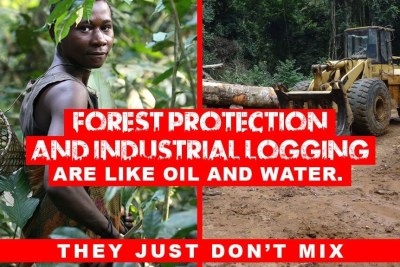-
Africa: Why Is the Congo Basin - the World's Largest Forest Carbon Sink - At Risk?
Global Witness, 12 December 2024
Home to a staggering array of biodiversity like forest elephants, chimpanzees, bonobos, and lowland and mountain gorillas, the Congo Basin's importance for both climate and… Read more »
-
Congo-Kinshasa: Indigenous People and Local Communities in the Congo Basin - Our Forests, Our Future !!!
Greenpeace, 28 August 2024
The Congo Basin, often referred to as the "lungs of Africa," is home to one of the world's largest rainforests and a rich tapestry of biodiversity. It is also the ancestral land of… Read more »
-
Congo-Kinshasa: Climate Movement Praises DR Congo for Halting Oil and Gas Block Auction
350Africa.org, 16 October 2024
The 30 oil and gas blocks auction that has been underway for more than two years for a procedure that cannot exceed 18 months has been finally put to an end to the delight of… Read more »
-
Africa: Crisis in the Congo
Global Witness, 20 June 2024
DRC's efforts to combat illegal logging reversed within months Read more »
-
Africa: Balancing Protection and Profit in the Congo Basin
ISS, 14 March 2023
The One Forest Summit delivered more pledges, but accelerated action is vital to stop illegal logging and deforestation. Read more »
-
Africa: The Congo Basin Got a Crucial Boost At COP28. Now We Must Build On It
African Arguments, 19 December 2023
Away from the headlines, announcements on deforestation and protecting the DRC's rainforests laid important groundwork for future action. Read more »
Why is the World's Largest Carbon Sink, the Congo Basin, at Risk?
Scientists believe that the Congo Basin is the world's most important rainforest carbon sink, absorbing more carbon than even the Amazon rainforest following the mapping of vast peatlands beneath the forest.
The growing global demand for minerals, including those deemed essential to the energy transition, is beginning to affect the region's forests. It is estimated that an estimated 27% of the region's intact forests lie within mining permits, according to Earth Insight, and with new mines come new roads and railroads for transporting minerals, compounding any potential impact on the environment. One of the largest of its kind, this iron ore deposit lies in once intact forest just outside Minkébé national park - a gorilla habitat and the Congo Basin's greatest refuge for forest elephants. The logging industry remains a major force across the Congo Basin, with timber concessions blanketing tens of millions of hectares of forest.
In the Democratic Republic of Congo, Cameroon and other countries across the region, activists are advocating for the preservation of their forests. However, the future of these precious ecosystems is at risk.
InFocus
-
Licensing rights for 30 oil and gas blocks in the DR Congo went up for auction on July 28 2022, opening parts of the world's second-biggest rainforest to drilling that could ... Read more »
-
President Félix Tshisekedi has received praise from Greenpeace Africa for his decision on October 15, 2021 to suspend all dubious logging concessions by multinationals ... Read more »
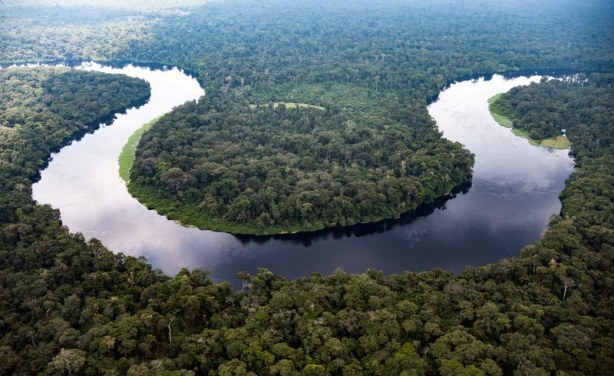
Aerial view of Monboyo River and peatland forest of Salonga National Park south-east of Mbandaka, Democratic Republic of the Congo. The most carbon-rich tropical region in the world is estimated to store the equivalent of three years’ worth of total global fossil fuel.
